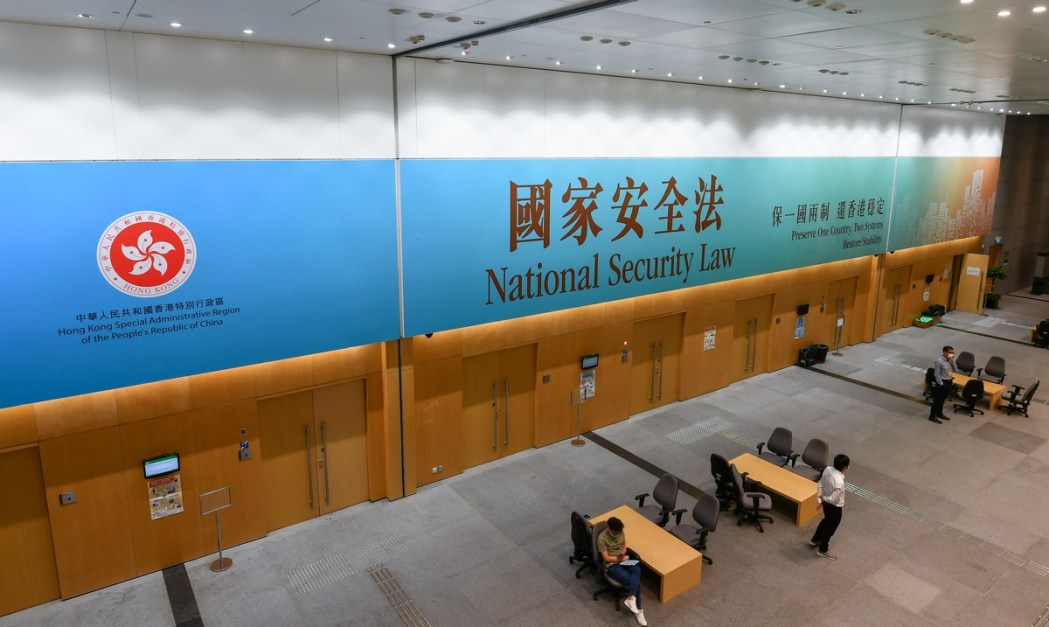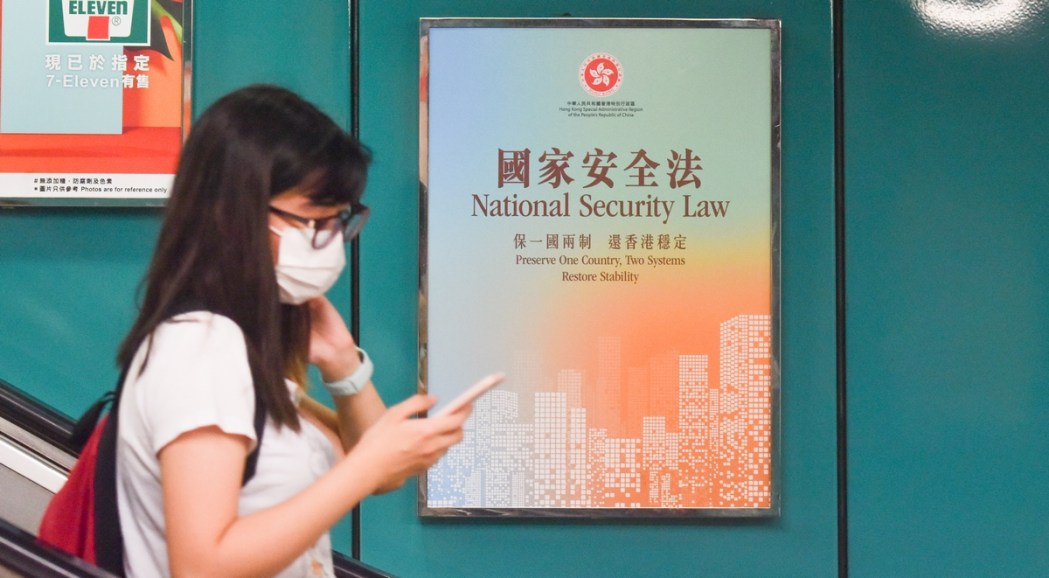Four United Nations international rights experts have urged the Hong Kong authorities to launch an independent review of the Beijing-imposed national security law, saying it is “incompatible” with international standards of rights and civil liberties. The government has rejected the criticism, saying that rights and freedoms “are not absolute.”
The experts’ statement on Tuesday said that there “needs to be a reinvigoration of an independent judiciary in Hong Kong, a pause in applying this law, and a fundamental reconsideration of its use.”

They also called on Hong Kong authorities to “refrain and reconsider” security law charges against human rights barrister Chow Hang-tung, the former vice-chair of the now-disbanded group behind the city’s annual commemoration of the 1989 Tiananmen Massacre, calling recent arrests under the legislation a “serious concern.”
Chow was arrested and charged with “incitement to subversion” as part of a police crackdown last month on the Hong Kong Alliance in Support of Patriotic Democratic Movements of China after it refused to comply with a national security probe.
The Alliance itself and two other leaders — veteran activists Albert Ho and Lee Cheuk-yan –have also been slapped with the same charges. Concurrently, five Alliance committee members, including Chow, were charged with violating security law provisions granting police powers to demand information while investigating suspected violations.

Ho and Lee were already serving sentences relating to unauthorised assemblies during the 2019 pro-democracy protests, while the five others have been denied bail.
The group’s remaining members voted to disband a fortnight later.
The Alliance had been a key player in Hong Kong civil society, organising annual candlelight vigils every June 4 to call for democracy and commemorate victims of the bloody crackdown in Beijing. The vigil was often seen as a barometer of the city’s freedoms, in contrast to the strict censorship in mainland China where the massacre has been scrubbed from collective memory.
The Tiananmen Massacre occurred on June 4, 1989 ending months of student-led demonstrations in China. It is estimated that hundreds, perhaps thousands, of people died when the People’s Liberation Army was deployed to crack down on protesters in Beijing.
‘Quelling domestic dissent’
The experts also accused Hong Kong authorities of misusing charges of terrorism and sedition to stifle local opposition voices, and freedom of speech, assembly and political participation.
“The cheapening of the seriousness of terrorist acts and sedition offences, when Governments improperly use them to justify quelling domestic dissent, limiting protests and curbing criticism by civil society and human rights defenders, is deeply troubling,” they said.

Over a dozen people from the age of 15 have been arrested on terrorism charges in relation to an alleged plot to launch a city-wide bombing operation. Four former university student leaders have also been separately charged with “advocating terrorism” after they issued a now-retracted declaration expressing sympathy with a man who killed himself after stabbing and injuring a police officer.
The UN experts also urged the government to allow local organisations to receive funding from international organisations after the police letter demanding information from the Alliance accused the group of acting as a “foreign agent.”
“Such regulatory measures, by imposing undue restrictions on funding and punishing recipients of foreign funding, infringe on the right to freedom of association as well as other human rights,” the experts said.

The experts included four of the international body’s special rapporteurs: Fionnuala Ní Aoláin (on the promotion and protection of human rights while countering terrorism); Clément Nyaletsossi Voule (on the rights to freedom of peaceful assembly and of association); Irene Khan (on the freedom of expression) and Mary Lawlor (on the situation of human rights defenders).
Rights ‘not absolute’
In response, the government on Wednesday said that Basic Law guarantees rights under the ICCPR but “such rights and freedoms are not absolute. It must be borne in mind that the ICCPR expressly states that they may be subject to restrictions as prescribed by law that are necessary for protection of national security, public safety, public order (ordre public) or the rights and freedoms of others, and more.”
They added that prosecutors must act in accordance with the security law and local law, and all decisions are based on evidence and free from inference.

The spokesperson said that, during the first security law trial, “the defendant’s legal representatives accepted that the defendant would still have a fair trial before a panel of three judges without a jury.”
In June 2020, Beijing inserted national security legislation directly into Hong Kong’s mini-constitution – bypassing the local legislature – following a year of pro-democracy protests and unrest. It criminalised subversion, secession, collusion with foreign forces and terrorist acts, which were broadly defined to include disruption to transport and other infrastructure. The move gave police sweeping new powers, alarming democrats, civil society groups and trade partners, as such laws have been used broadly to silence and punish dissidents in China. However, the authorities say it has restored stability and peace to the city.
Since its implementation, 154 people between the ages of 15 to 79 have been arrested under the legislation, 96 of whom have been charged. The law has also been used to charge and freeze the assets of four companies, including the Alliance.
Support HKFP | Policies & Ethics | Error/typo? | Contact Us | Newsletter | Transparency & Annual Report | Apps
Help safeguard press freedom & keep HKFP free for all readers by supporting our team
























